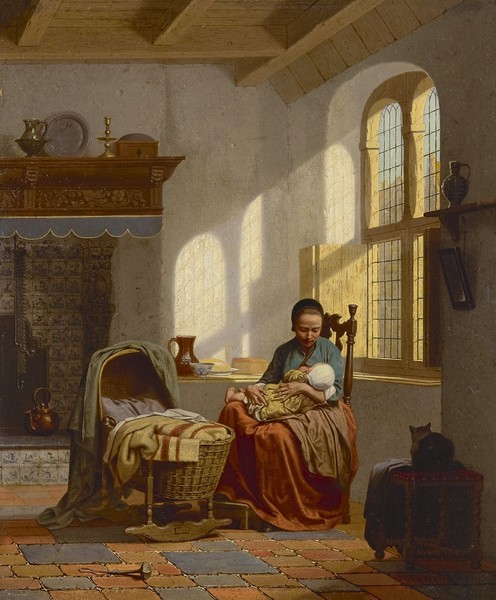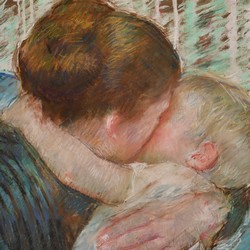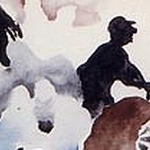
The father of Mieczysław Weinberg arrived in Warsaw fleeing from the pogrom of Kishinev (then in the Russian Empire) in 1905, where his father and grandfather had died. More than thirty years later, Mieczysław was the only survivor of his family; He was able to escape from the Warsaw Ghetto, while his parents and his sister were killed in the Trawniki concentration camp in 1943. He settled in the USSR, where his father-in-law was murdered in 1948 by Stalin's secret police, and he was arrested in February 1953 on suspicion of bourgeois Jewish nationalism (whatever that this means); Stalin's death the following month saved his life. From then on, Weinberg was able to live without checking if he was being followed; he died in 1996.
If things had gone differently, Weinberg would probably have been a virtuoso concert pianist. In 1929, when he was ten years old, he made his debut as a pianist and conductor at the theatre in Warsaw where his father, a violinist and composer, worked, and his studying were oriented towards playing piano. When he arrived in the Soviet Union, however, he began studying composition in Minsk (in Belarus). Just after his graduation, he must escape again fleeing from Nazism, this time to Tashkent, Uzbekistan. There, he met Dmitri Shostakovich who, impressed by his music, managed his move to Moscow. Since he settled there in 1943, he only occasionally performed piano concerts.
He composed, among other works, seven operas, twenty-six symphonies, seventeen string quartets, ten concertos, nearly thirty sonatas, music for sixty-five films and twenty-seven song cycles; a very extensive work virtually unknown outside the area of the former Soviet Union. The situation began to change in 2010, when the Bregenz Festival devoted its programme to Weinberg's music; the first recordings emerged, and Weinberg's work began to be known and played.
Weinberg and Shostakovich were close friends and admired each other's music. The two followed similar paths, conditioned by the continuing threats of the Soviet regime and, since Shostakovich was thirteen years older and much better known, it has often been assumed that he influenced Weinberg's work. There is little doubt, however, that it was sometimes the other way around: the Jewish music of Weinberg influenced Shostakovich's Jewish music.
Weinberg wrote many works inspired by Jewish music and literature during the 1940s, including two song cycles, Opus 13 and Opus 17. The opus 13 was composed and premiered it in 1943, just before he left Tashkent; the texts were chosen among the poems of the Polish Jewish poet Icchok Lejbusz Perec (or Isaac Leib Peretz), who lived between 1851 and 1915 and is considered one of the founders of modern literature in Yiddish. If you look for scores or recordings of the cycle you will find them with two names: the original Jiddische Lieder and Kinderlieder, and in two languages, Yiddish and Russian. This second version was published in 1944; Weinberg's first published work changed its name and language, trying to conceal its Jewish origin. The cycle has five songs, plus an Introduction without lyrics; there is also a Coda following the last song. We will listen to the second song (third, if we count the introduction), Lullaby, in the Russian translation by Natalija Konchalovskaja and performed by Olga Kalugina and Dmitri Korostelyov. Some of us will be lucky enough to listen to the whole cycle in Vilabertran, performed by Katharina Konradi and Daniel Heide.
Tixe, tixe, kot, tixe, tixe, mix.
Vot uj zassipaiet moi malix.
Baixki, baraixki, ne bleite v khlevu,
Moi malix prosnetsia, ia vas pozovu.
Veterok, ne zavivai,
Tixe, tixe, pessik, ti ne lai.
Prikussi svoi iazitxok,
Txtobi spat moi maltxik mog.
Baiu-bai, baiu-bai.
Hush now, cat, hush now, mouse.
For now my little boy is falling asleep.
Little lambs, nasty little things, do not bleat in the shed,
I beg you, for my little boy is going to sleep.
Little breeze, do not whirl,
hush, hush little doggie, do not bark,
bite your tongue,
so that my boy may sleep,
lulla-by, lulla-by, ah, ah.
(translation by Tocata Classics)
And this is the Russian poem:
Тише, тише, кот, тише, тише, мышь.
Вот уж засыпает мой малыш.
Башки, барашки, не блейте в хлеву,
Мой малыш проснется, я вас позову.
Ветерок, не завывай,
Тише, тише, песик, ты не лай.
Прикуси свой язычок,
Чтобы спать мой мальчик мог.
Баю-бай, баю-бай.


















Comments powered by CComment